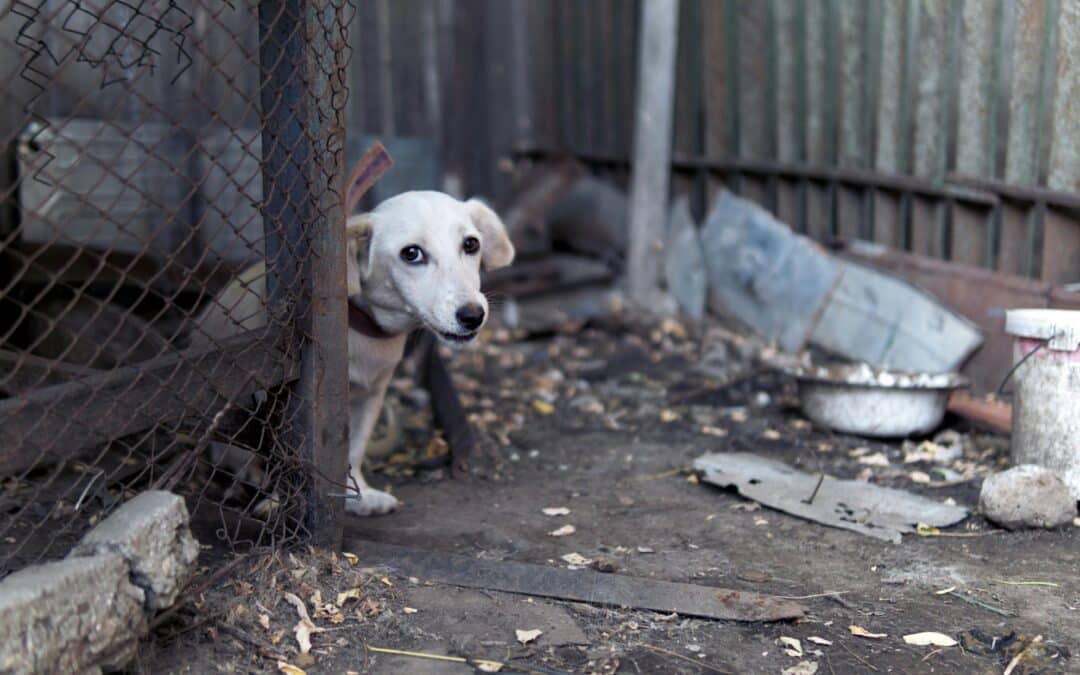Humans are animals. Recognizing this helps shift us away from anthropocentric thinking that drives the climate crisis and leads to mass suffering. Animal law isn’t just about legal protections for nonhumans; it’s about fostering relationships between humans and nonhumans that prevent suffering.
Most acts of animal cruelty go unreported. How do we address that? True animal law starts with inclusive birth and child welfare policies that foster empathy, empower future generations, and protect animals. Human and nonhuman liberation are interconnected, as the way we shape our relationships drives outcomes for both.
The Hidden Undoing of Animal Law
Many organizations promoting animal law ignore how their efforts are undermined by unchecked human growth and the erosion of political equity. They claim progress without acknowledging that expansion in human populations, wealth concentration, and political inequity counteract their efforts. By ignoring these fundamental drivers of animal suffering, these organizations uphold a version of animal law that ultimately harms animals more than it helps them.
This omission is intentional. The organizations rely on assessment and reporting standards that obscure the real impact of human expansion, protecting the interests of wealthy donors rather than the vulnerable beings they claim to defend. They omit the connection between animal protection and just, sustainable human development because it threatens entrenched power structures.
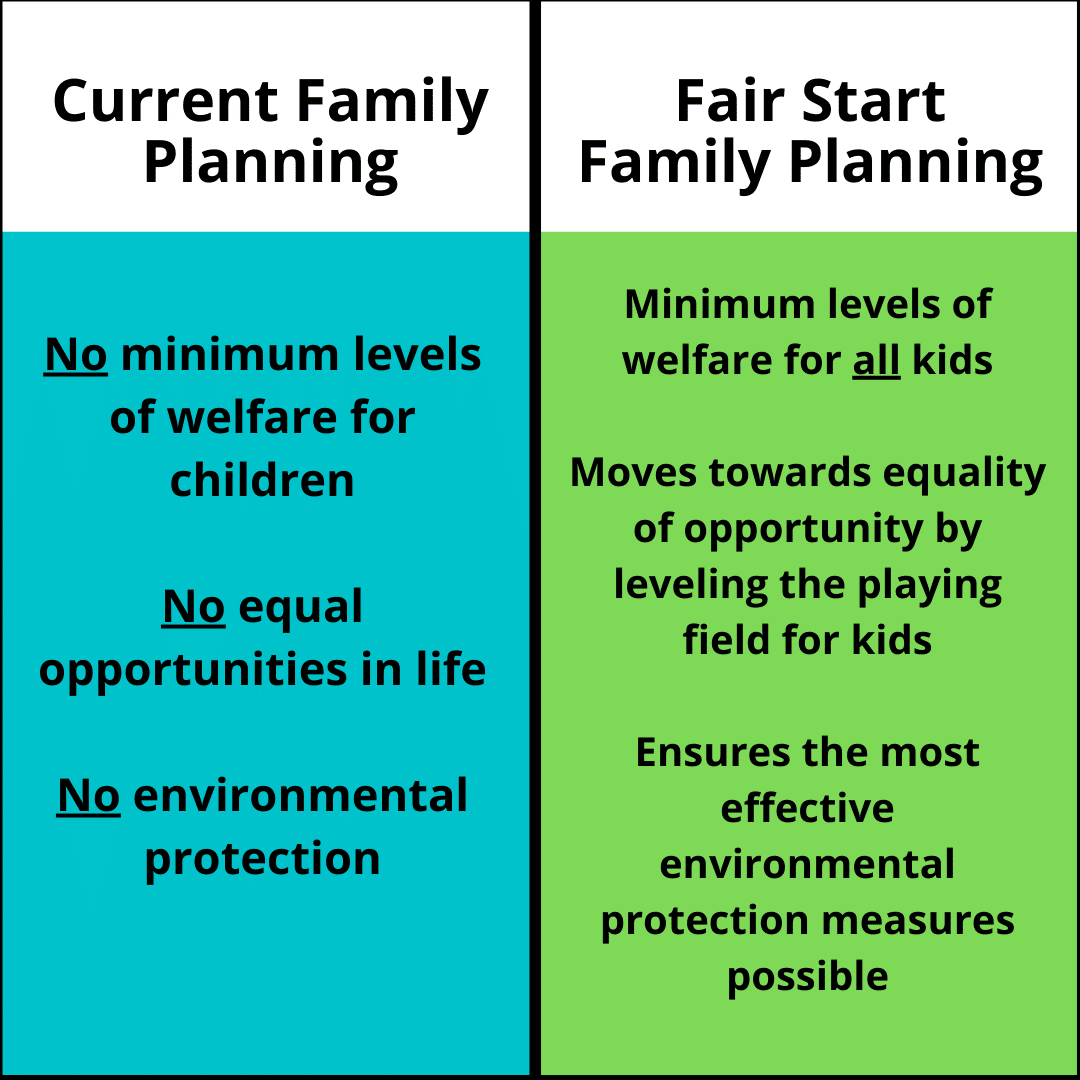
The Fundamental Truth
We have collectively violated children’s right to a fair start in life. We have prioritized economic growth over political equity, allowed unsustainable population expansion, and ignored the needs of marginalized communities. These actions have caused more harm to animals, ecosystems, and human justice than any isolated intervention can remedy.
Animal law isn’t just about legal directives referring to animals; it’s about ensuring legal systems protect nonhumans meaningfully. The best measure of animal law is found in constitutional preambles and the structures that shape human-nonhuman relationships—not just in laws that mention animals.
The Creation Problem
Our birth and development—our creation—is the largest determinant of nonhuman suffering. It outweighs any other human behavior. Our creation also dictates how legal systems function, determining whether they genuinely include and empower the vulnerable or serve only the privileged.
Animal law must begin with the ethical considerations of human creation. Without this foundation, no legal system can meaningfully protect nonhumans. Yet, discussions of creation ethics are avoided because they raise uncomfortable questions about racial equity, climate reparations, parental responsibility, degrowth, and liability for misleading charitable work.
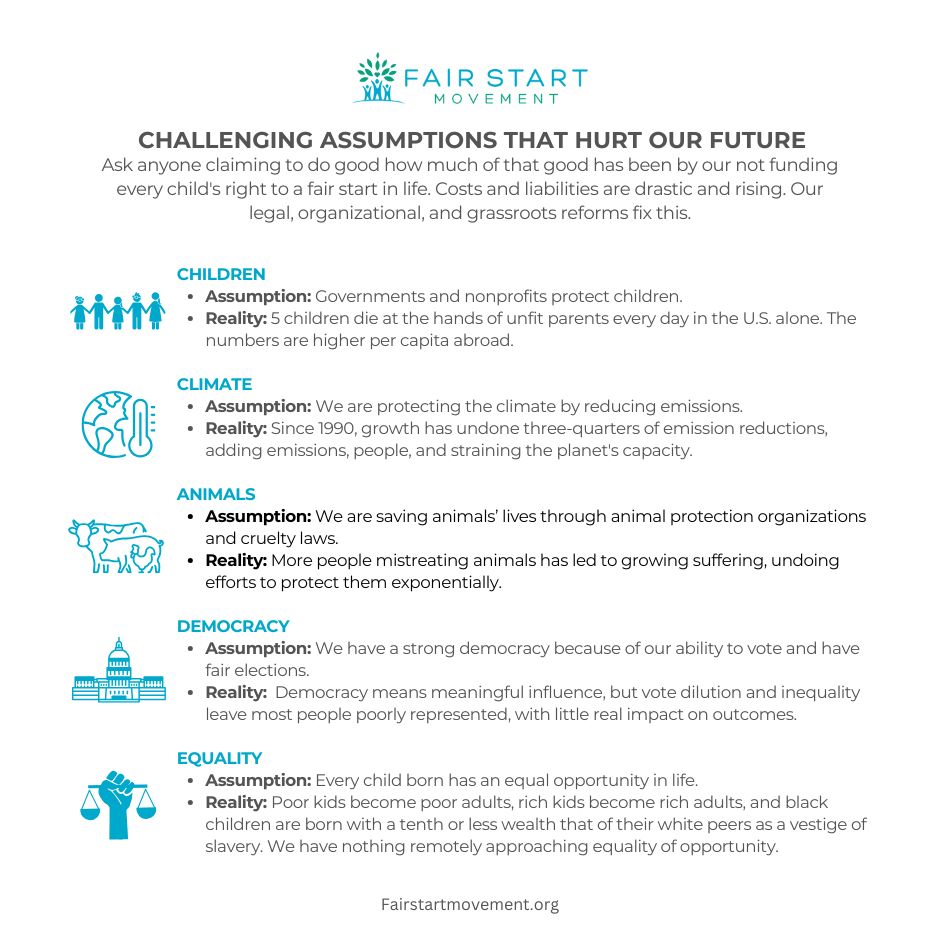
The Wealthy Influence on Animal Law
For decades, wealthy families and funders have shaped animal law to serve their own interests. They support narrow definitions of animal law that ignore the role of population growth and political inequity, ensuring that advocacy remains performative rather than transformative. Many advocates embrace this limited scope because it offers well-compensated work with little real impact.
Growth continues to undo the progress claimed by these organizations. It is easier to engage in performative animal law—discussing legal references to animals while ignoring the broader forces that shape their suffering. Large media budgets promote interventions that favor donors more than animals, drowning out solutions that would have a real impact. But there is no such thing as anthropocentric animal law.
Justice cannot emerge from injustice. We cannot create a just society while violating children’s rights at birth, ensuring inequity from the start. Nations cannot be legitimate if they provide no functional protections for children as they enter the world—or for the nonhuman world they will impact.

The HSUS Example: Monetizing Animal Liberation
In 2003, Fair Start advocates working with the Humane Society of the United States (HSUS) framed farmed animals as the most numerous victims of human cruelty. This framing aligned with corporate interests, such as Whole Foods, which profited from growing public outrage over factory farming. The strategy monetized the concept of animal liberation without actually achieving it.
The most numerous class of animals, however, are future animals. HSUS and others ignored this reality, treating future beings the same way growth economists treat future people—as expendable. Rather than promoting small family ethics and policies that would reduce suffering, HSUS focused on food reforms within a growth-based market.
Many advocates profited from the food sector while using sensational campaigns to overshadow the macro-level drivers of suffering. This growth-driven demand, not food choice alone, remains the largest determinant of climate outcomes and animal suffering.
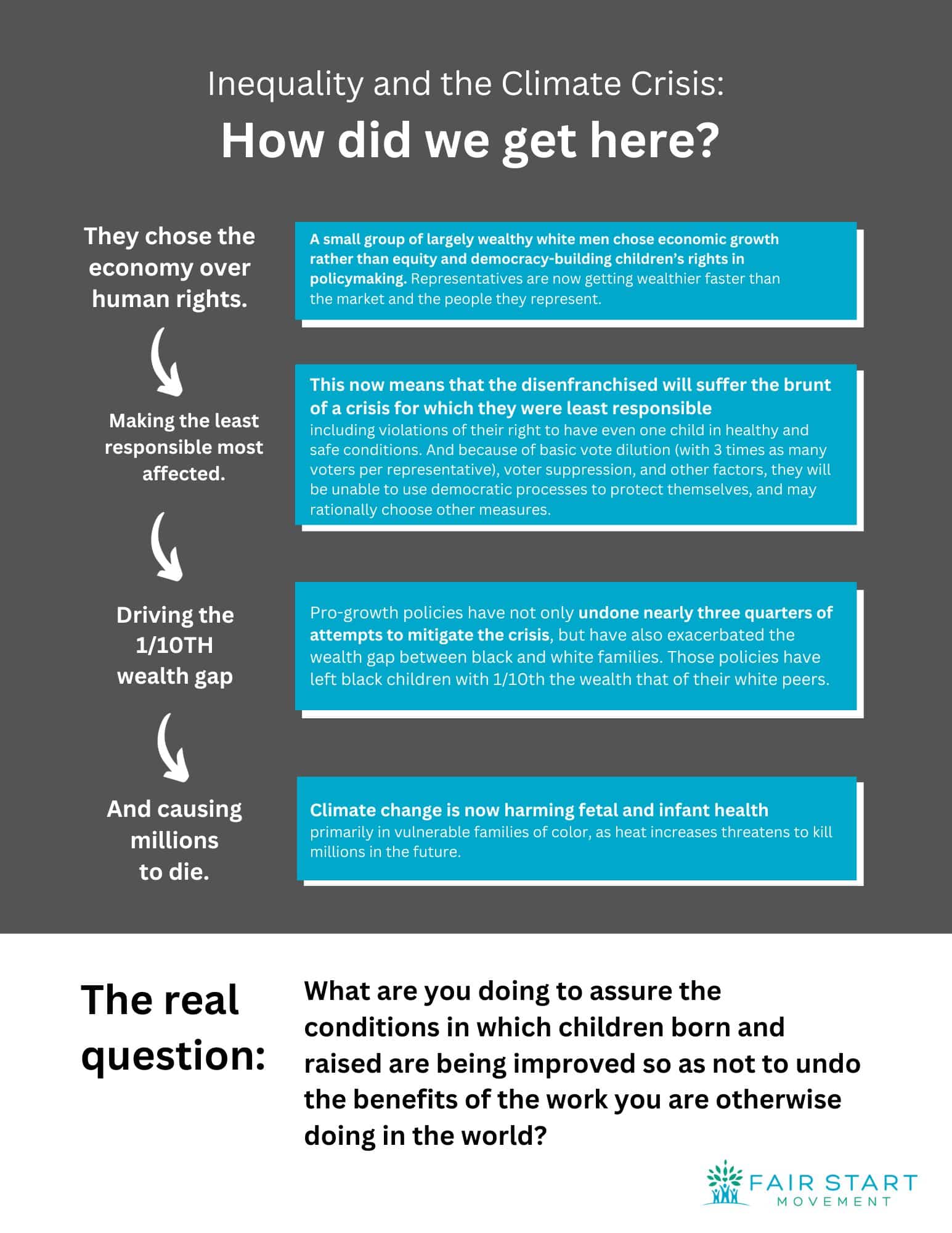
The Corruption of Animal Law
Animal law, as the most demanding form of social justice, serves as a measure of broader justice. It should assess how we include future generations in legal systems, empowering them to protect animals. However, from 2003 to today, most discussions of animal law focus on food and other downstream interventions. Few address family reforms that could benefit both animals and vulnerable humans.
Many nonprofit funders manipulate the field by using media, academia, and legal framing to obscure real impacts. Harvard University, for example, claims to improve animal treatment through law but does not address the fundamental driver of suffering: anthropocentric growth. Their policies benefit funders more than animals.
A senior funder associated with Harvard’s program has refused to include abortion access in animal law discussions, despite its disproportionate benefit to animals compared to food reforms. Their metric for impact ignores growth and birth-related impacts, ensuring inequity continues. Many organizations dependent on this funding remain silent, allowing resources meant for animals to sustain human privilege instead.
The Demand for Climate Justice
As climate reparations become a global demand, animal lawyers will face scrutiny. What were they doing during the crucial years of the climate crisis? Did they challenge the systems enabling injustice, or did they serve the interests of the powerful?
Recent direct action movements offer hope that animal law can move toward true liberation rather than performative advocacy. However, if these movements ignore macro-level reforms, they, too, fail to serve nonhumans meaningfully.
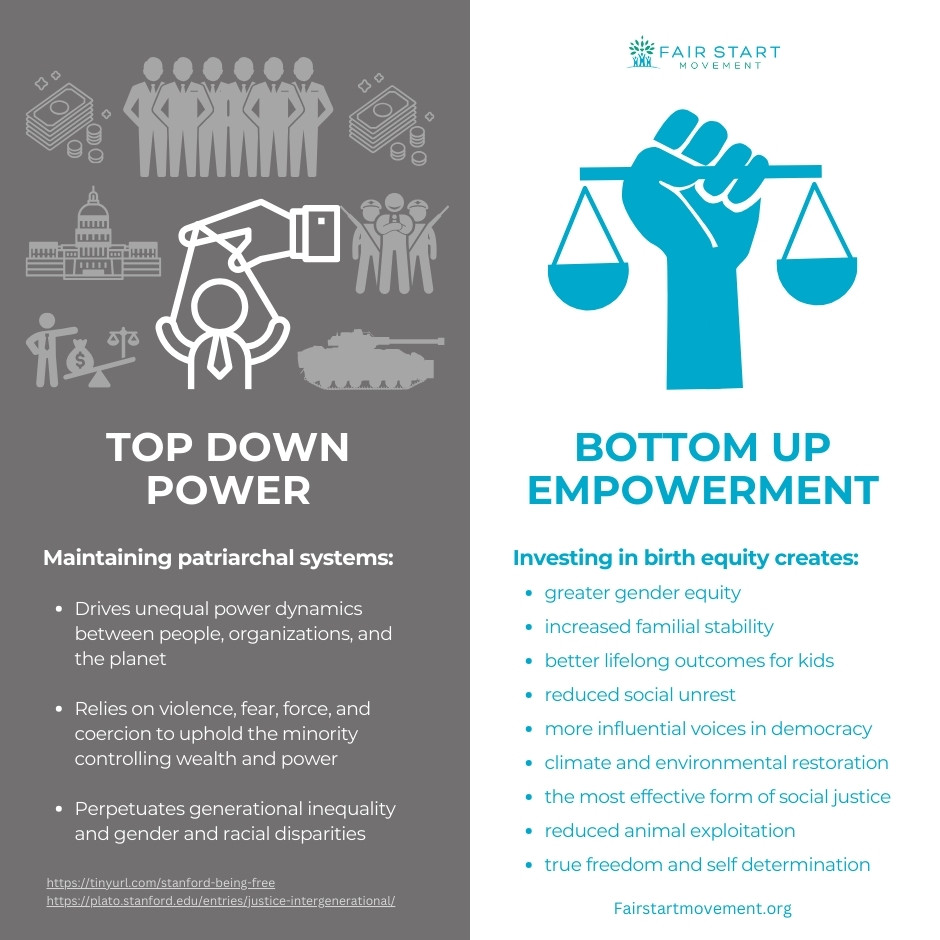
Fair Start: Exposing False Claims
The Fair Start Movement exists to expose misleading impact claims and hold institutions accountable. Our Tell the Truth campaign asks key questions:
- How do organizations account for children’s rights when claiming beneficial impact?
- Are their claimed benefits being undone by growth and inequity?
By challenging these false narratives, we push for policies that prioritize birth equity and sustainable relationships, ensuring that animal law becomes a force for real justice—not a tool of wealth and power.
Conclusion: Be Effective
The commercialization of animal rights as food consumerism is a stark example of how a justice movement can be co-opted. Organizations continue making fraudulent impact claims while inequity and growth undo their efforts daily. Many companies that diverted resources from fundamental reforms ultimately failed.
We can change this. Start by asking: “When you claim to benefit animals, how do you account for children’s rights? Is your work being undone by growth?”
Only by telling the truth can we ensure that animal law serves animals not the wealthy individuals who define it for their own gain.
Click here to Donate to Fair Start Movement Campaign

